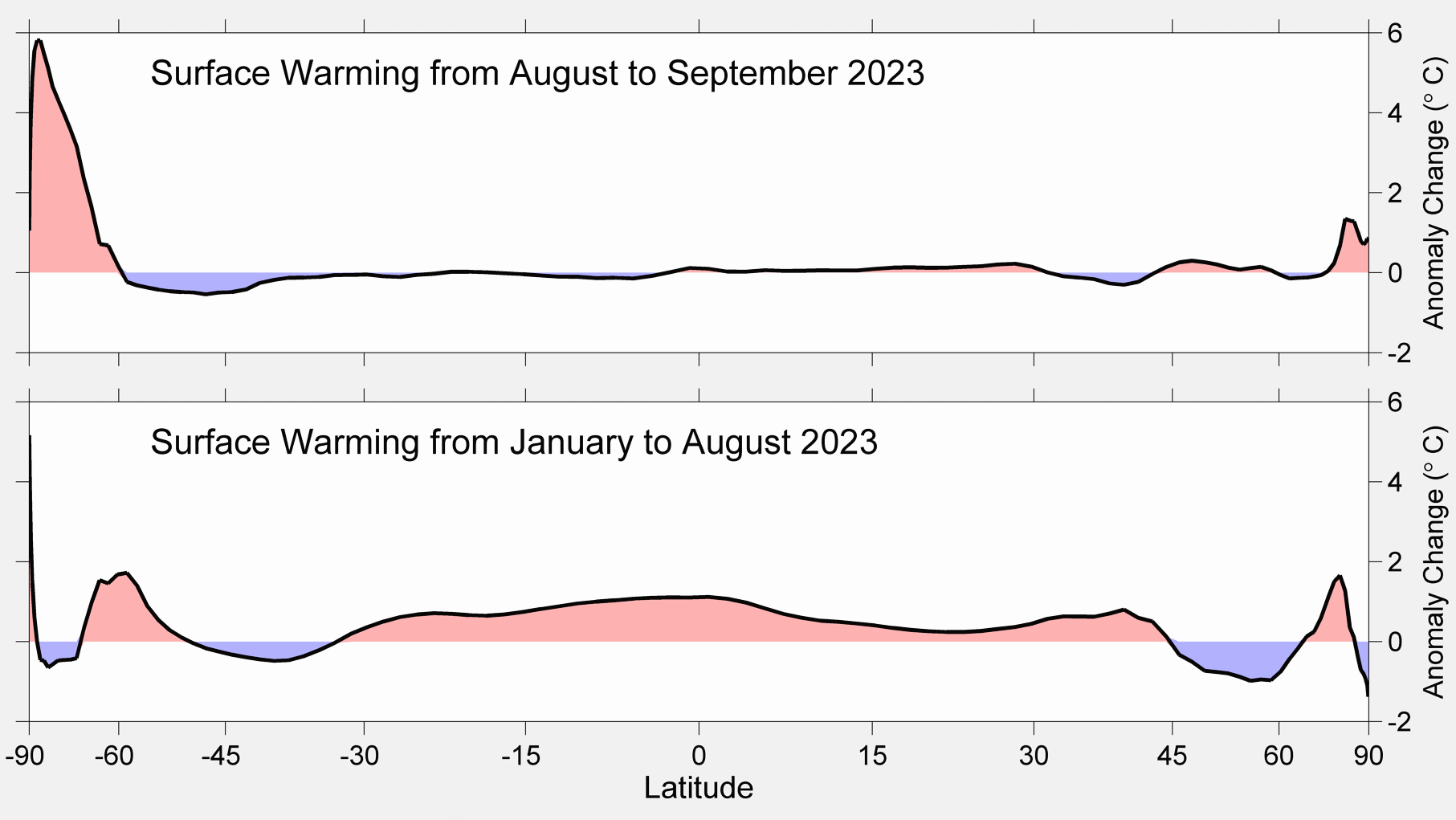Event JSON
{
"id": "1a4f4955264f6251e3b9e1da186ad9122cb427f297880be88fab1df0c7bbd442",
"pubkey": "dd34380a8986339a465dcfb9fd8f2d2b61ad3957178adeca2e9084e89465a221",
"created_at": 1697063935,
"kind": 1,
"tags": [
[
"e",
"2f056a9c9c7d3e90a4ec162cca48e310bc1ad48baeb1c8d8b7eca92d6e62efab",
"wss://relay.mostr.pub",
"reply"
],
[
"t",
"elnino"
],
[
"t",
"antarctica"
],
[
"t",
"weather"
],
[
"t",
"temperature"
],
[
"t",
"Climate"
],
[
"t",
"globalwarming"
],
[
"t",
"climatechange"
],
[
"proxy",
"https://fediscience.org/users/RARohde/statuses/111218782101752935",
"activitypub"
]
],
"content": "The sharp uptick in temperatures since August is mostly due to warming in polar regions, especially Antartica.\n\nThis contrasts to the warming earlier in 2023, which was broadly associated with the El Niño transition and other changes in the tropics and mid-latitudes.\n\n#ClimateChange #GlobalWarming #Climate #Temperature #Weather #Antarctica #ElNino \n\n7/\n\nhttps://fediscience.org/system/media_attachments/files/111/218/781/095/154/161/original/bc6e1cf454c499f5.png",
"sig": "9a7eef34dc6fa028056dde0456f642d9a13b5f34ed95d148f3607cdd12c19adfc8a81ea6a970c62f330a264a2e4c13be07831053daf59a7118af17482d24f0e5"
}

